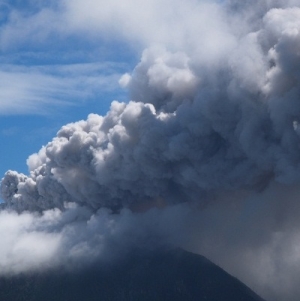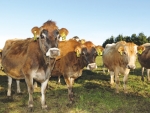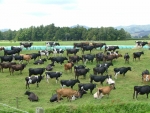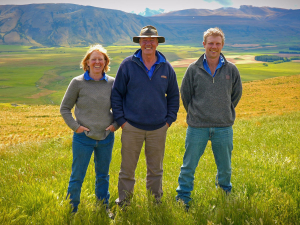However, the NZ Veterinary Association (NZVA) warns that should there be more eruptions distributing significant amounts of ash, it could cause an animal welfare problem if water and clean feed are not available.
Scientists are predicting there will be further eruptions which could continue for months.
"In the event of significant ash fall access to fresh clean water is imperative for livestock grazing ash covered pastures," Dr Donald Shanks from VetPlus in Taupo says.
"If water troughs become contaminated, they should be cleared of ash and refilled with clear water where practicable. Troughs can be covered in the event of future eruptions to prevent further ash contamination. But of course, access to water must always be available," Dr Shanks said.
If an ash eruption covers grass, stock should be moved, if possible to where they can access longer length and grassy pasture to help reduce ash and contaminated soil ingestion.
Where longer length grass is not available, stock should be fed supplementary feed, such as hay or silage, although stock not used to it might take some time to adapt.
Dr Wayne Ricketts from the NZ Veterinary Association (NZVA) and co-chair of the National Animal Welfare Emergency Management Advisory Group notes that volcanic ash can affect both the skin and the lungs of animals.
"Ash can be detrimental to an animal's health eg eye, skin (infections due to ash covering the animal's body and not allowing air to circulate, therefore the skin becomes a humid environment for normal bacteria to proliferate) and lung damage," he said.
If the eruption worsens animals with respiratory conditions should be removed from the area and/or kept indoors or under shelter if possible. Ash can quickly wear grazing animals' teeth down as well, with cattle and horses most at risk.
A common-sense approach to animal welfare should be adopted, should the eruption prove to be serious, the NZVA suggests.











